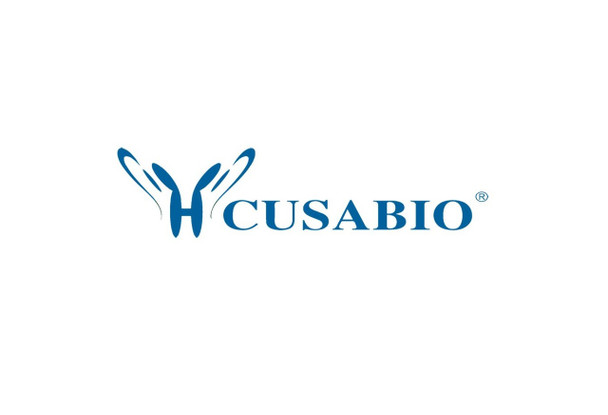Cusabio Active Proteins
Recombinant Human Immunoglobulin heavy constant gamma 1 (IGHG1), partial (Active) | CSB-AP005531HU
- SKU:
- CSB-AP005531HU
- Availability:
- 5 to 10 Working Days
Description
Recombinant Human Immunoglobulin heavy constant gamma 1 (IGHG1) ,partial (Active) | CSB-AP005531HU | Cusabio
Protein Description: Partial
Alternative Name (s) : g gamma-1 chain C region;IGHG1
Gene Names: IGHG1
Research Areas: Cancer
Species: Homo sapiens (Human)
Source: Mammalian cell
Tag Info: Tag-Free
Expression Region: 104-330aa
Sequence Info: DKTHTCPPCPAPELLGGPSVFLFPPKPKDTLMISRTPEVTCVVVDVSHEDPEVKFNWYVDGVEVHNAKTKPREEQYNSTYRVVSVLTVLHQDWLNGKEYKCKVSNKALPAPIEKTISKAKGQPREPQVYTLPPSRDELTKNQVSLTCLVKGFYPSDIAVEWESNGQPENNYKTTPPVLDSDGSFFLYSKLTVDKSRWQQGNVFSCSVMHEALHNHYTQKSLSLSPGK
Biological Activity: The ED50 as determined by its ability to bind Human FCGR3A in functional ELISA is less than 10 ug/ml.
MW: 25.9 kDa
Purity: Greater than 95% as determined by SDS-PAGE.
Endotoxin: Less than 1.0 EU/µg as determined by LAL method.
Relevance: As a monomeric immunoglobulin that is predominately involved in the secondary antibody response and the only isotype that can pass through the human placenta, Immunoglobulin G (IgG) is synthesized and secreted by plasma B cells, and constitutes 75% of serum immunoglobulins in humans. IgG antibodies protect the body against the pathogens by agglutination and immobilization, complement activation, toxin neutralization, as well as the antibody-dependent cell-mediated cytotoxicity (ADCC) . IgG tetramer contains two heavy chains (50 kDa) and two light chains (25 kDa) linked by disulfide bonds, that is the two identical halves form the Y-like shape. IgG is digested by pepsin proteolysis into Fab fragment (antigen-binding fragment) and Fc fragment ("crystallizable" fragment) . IgG1 is most abundant in serum among the four IgG subclasses (IgG1, 2, 3 and 4) and binds to Fc receptors (FcγR) on phagocytic cells with high affinity.
PubMed ID:
Notes: Repeated freezing and thawing is not recommended. Store working aliquots at 4℃ for up to one week.
Function: Constant region of immunoglobulin heavy chains. Immunoglobulins, also known as antibodies, are membrane-bound or secreted glycoproteins produced by B lymphocytes. In the recognition phase of humoral immunity, the membrane-bound immunoglobulins serve as receptors which, upon binding of a specific antigen, trigger the clonal expansion and differentiation of B lymphocytes into immunoglobulins-secreting plasma cells. Secreted immunoglobulins mediate the effector phase of humoral immunity, which results in the elimination of bound antigens
Involvement in disease: Multiple myeloma (MM)
Subcellular Location: Secreted, Cell membrane
Protein Families:
Tissue Specificity:
Paythway:
Form: Lyophilized powder
Buffer: Lyophilized from a 0.2 μm filtered 20 mM PB, 150 mM NaCl, pH 7.4
Reconstitution: We recommend that this vial be briefly centrifuged prior to opening to bring the contents to the bottom. Please reconstitute protein in deionized sterile water to a concentration of 0.1-1.0 mg/mL.We recommend to add 5-50% of glycerol (final concentration) and aliquot for long-term storage at -20℃/-80℃. Our default final concentration of glycerol is 50%. Customers could use it as reference.
Uniprot ID: P01857
Uniprot Entry Name:
HGNC Database Link: HGNC
UniGene Database Link: UniGene
KEGG Database Link: N/A
STRING Database Link: N/A
OMIM Database Link: OMIM









